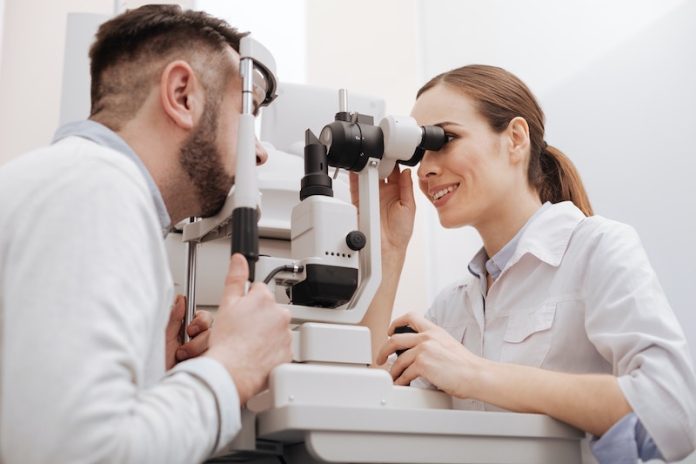
Duke Health researchers have developed a computer program that can spot the early signs of mild memory problems by analyzing images of the eye.
These memory problems are often the first step toward Alzheimer’s disease.
The new program, which uses machine learning, could offer a simple and affordable way to catch these early signs before the condition worsens into full-blown Alzheimer’s.
“This is exciting because we’ve never been able to pick out these early memory issues from normal thinking before,” said senior researcher Sharon Fekrat.
Fekrat and her team have previously created similar programs to identify people already diagnosed with Alzheimer’s. Their latest research builds upon that, offering hope for even earlier detection of cognitive issues.
How Does it Work?
The program analyzes eye scans, specifically looking at detailed images of the retina, which is the back part of the eye.
These scans use a technique known as optical coherence tomography (OCT) and its advanced version called OCT angiography (OCTA).
The program looks for certain features in these scans, combined with other information like age, sex, and educational background, to identify those with mild memory issues.
The Duke team reported impressive results. The program could accurately distinguish between people with normal brain function and those with mild cognitive issues about 8 out of 10 times.
“This is the first time we’ve been able to use these kinds of eye scans to separate people with mild memory issues from those without,” said co-first author C. Ellis Wisely.
Why is this Important?
If you can catch memory problems early, you have a better chance of slowing down or even stopping them from turning into Alzheimer’s.
“As new treatments for Alzheimer’s are coming out, it’s becoming more and more important to find out who’s at risk early on,” said Wisely.
Alexander Richardson, another key member of the research team, highlighted how practical and powerful this eye scan technique could be.
“The eye is like a mini-window into the brain,” he said, “and our machine learning program uses easy and inexpensive eye scans to evaluate brain health and potentially screen large groups of people.”
What’s Next?
While these early results are promising, more research is needed to fine-tune the program and validate its effectiveness.
Still, this development marks a significant advancement in the early detection of cognitive impairments that could lead to Alzheimer’s disease.
The ease and affordability of the eye scans make this approach an attractive option for large-scale screenings in the future, as it could pave the way for early interventions and better outcomes for patients.
If you care about wellness, please read studies about exercise that are vital to improving longevity in older people, and this dieting method could help increase longevity.
For more information about wellness, please see recent studies about vaccines that can block COVID-19 and variants, plus other coronaviruses, and results showing this type of exercise may slow down bone aging.
The study was published in Ophthalmology Science.
Follow us on Twitter for more articles about this topic.
Copyright © 2023 Knowridge Science Report. All rights reserved.



